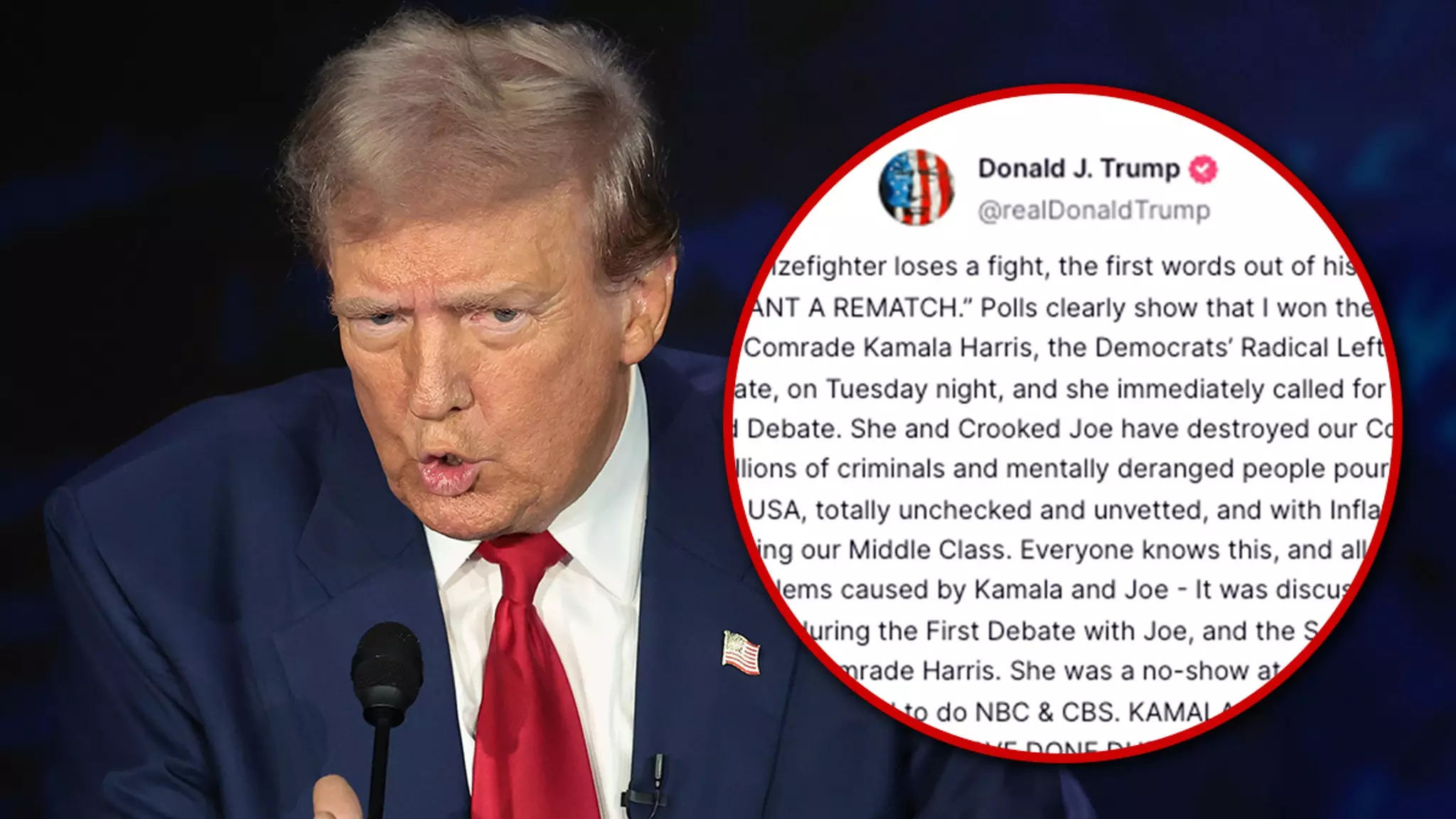In a recent announcement on Truth Social, former President Donald Trump decisively ruled out the prospect of a third presidential debate with Democratic candidate Kamala Harris. His social media address painted a vivid picture of Harris as a defeated combatant in a boxing ring, metaphorically demanding a rematch. Trump dismissed her aspirations for another round, portraying himself as the undisputed victor in their previous encounters. By framing his stance as a refusal to engage with what he terms “Comrade Kamala Harris,” he creates an image of political superiority backed by what he claims are favorable polling numbers.
Trump’s arguments extend beyond mere debate logistics. He redirected the conversation towards current national challenges, highlighting his belief that Harris should concentrate on more pressing problems rather than seeking further debate opportunities. This shift in focus serves a dual purpose: it allows Trump to criticize Harris, while simultaneously presenting himself as the candidate focused on tangible solutions. He emphasized failures in immigration policy under the Biden administration, suggesting that criminals and individuals with mental health issues threaten public safety. Such provocative statements aim to resonate with his base and paint the current administration in a negative light, reinforcing Trump’s narrative of being a preferable alternative.
Reflecting on past debates, Trump mentioned a previous interaction with President Joe Biden, which he suggested led to Biden’s withdrawal from the race and Harris’s subsequent nomination. This assertion hints at Trump’s desire to control the narrative surrounding his political competitors. Despite the underlying seriousness of immigration policy and inflation, Trump’s recollection of events often veers into the realm of sensationalism, such as the bizarre comment about immigrants resorting to extreme actions like consuming pets—a claim likely designed to provoke outrage and garner attention.
Divided Responses and Viral Moments
The landscape of public opinion regarding the debates remains sharply divided along partisan lines, a characteristic feature of contemporary American politics. Each candidate’s supporters discern strengths and weaknesses through their own ideological lens. Notably, the recent debate showcased various viral moments that captured public attention, including an awkward handshake that set an uncomfortable tone for the evening. Such occurrences provide ample fodder for discussion and analysis, revealing more about candidates’ personas and public perceptions than about substantive policy discussions.
As the campaign continues, endorsements also play a critical role in shaping candidate prospects. Kamala Harris’s recent backing by pop culture icon Taylor Swift represents a significant pivot to a younger demographic, an area where Trump consistently struggles. The allure of celebrity endorsements highlights an aspect of modern political campaigning that transcends traditional boundaries. While Trump may have firmly stated there will be no rematch with Harris, the political landscape remains fluid, and unexpected alliances or endorsements can shift the stage at any moment.
While Trump has closed the door on additional debates with Harris, the implications of his statements and the dynamics of the campaign continue to evolve. The dialogue surrounding their political rivalry underscores broader themes of strategy, public perception, and the intricacies of engaging different voter bases in this tumultuous electoral climate.


Leave a Reply